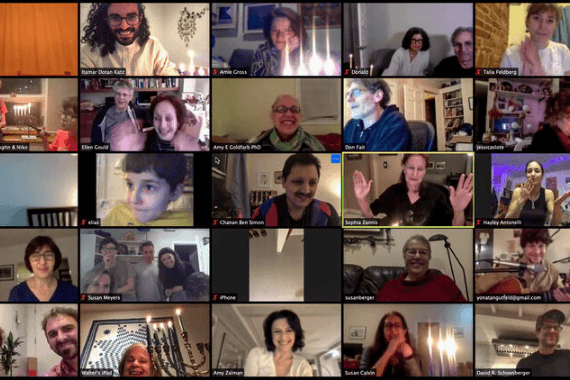Face פנים
Dear friends,
We seem to have fixed our issue with Medium, so everyone should be able to open the letter without a problem. I love getting your thoughts and comments, so please continue to send them to me, or to respond in the comments section on Medium. And please send us any feedback about the experience reading it there.
The letter is about French philosopher Levinas' notion of the face. It begins like this:
Emmanuel Levinas explains it like this: when we see another’s face, we are commanded “Thou shalt not murder.”
The sixth of the Ten Commandments, which we read this Shabbat, is unnecessary since it is written on the face of anyone you allow yourself to see. The process unfolds as follows: we walk around the world in complete self-absorption, following the totally natural way of human beings, which is to say selfish desire. If anything or anyone comes in the way of fulfilling our desires, we find a way around it, through it, dispensing of it as we see fit. It is the way of all creatures and we are no different. One thing can come in the way of our selfishness, and that is encountering another’s face. At that moment an immediate psychic transformation occurs. Over and Against our human instinct we rise. Thou shalt not murder, we are commanded, and with it an understanding of other people and an acknowledgement of their reality. Suddenly we know we are not alone in the universe.
Why does the face hold such transformative power?
The Hebrew word for face is panim. It is the same root, almost the very same spelling, of the word for inside, pnim. After playing in the snow I told my boys בואו ניכנס פנימה, let’s go pnima, inside, or toward the interior. The English verb To face something, means to look at it. “Face your partner,” an acting teacher might say, meaning stand opposite them and look at them. “Face your history,” an BLM activist might demand, meaning stare at it, see it clearly for what it is.
In Hebrew the same verb, to face, or lehafnim means to internalize. “Atah batzava achshav, Tafnim!” An IDF sergeant might have said to a rebellious 18 year old in basic training: “You’re in the army now, internalize it!” Meaning, understand it deeply within your body so that you may change your behavior.
In Hebrew the face is a revealer of the inside of a person. When we see a face, we see the person, like in a soul-x-ray machine. We don’t actually see the face when we are looking properly, but what is behind it: the uniqueness, the struggle, the story, the spirit that is behind the skin, flesh and bones that make up that face.
When we bless our kids on Shabbat with the words Yisa Adonai panav elekha, May Adonai turn her face toward you, we do not mean God’s physical face, but the inside of God, the heart and force and spiritual make up of divinity, of world-ness, of reality, of time, place and action, of Truth.
Moses, Torah tells us, was the only one to ever see that - to see God face to face. But we have the ability to see something arguably far more beautiful: the face of a fellow traveler, of a loved one, of a teacher, of a stranger, and a friend.
One gift the pandemic gave us, which like the Israelites in the desert, we complain about quite often, is the focus that Zoom and other virtual meeting spots place on people’s faces. Lets try to remember that this week when we FaceTime with our people for the thousandth time since last March. May we continue to practice the ability to see each other’s faces — on and off our screens — and the oceans they reveal.
Shabbat shalom,
Rabbi Misha

